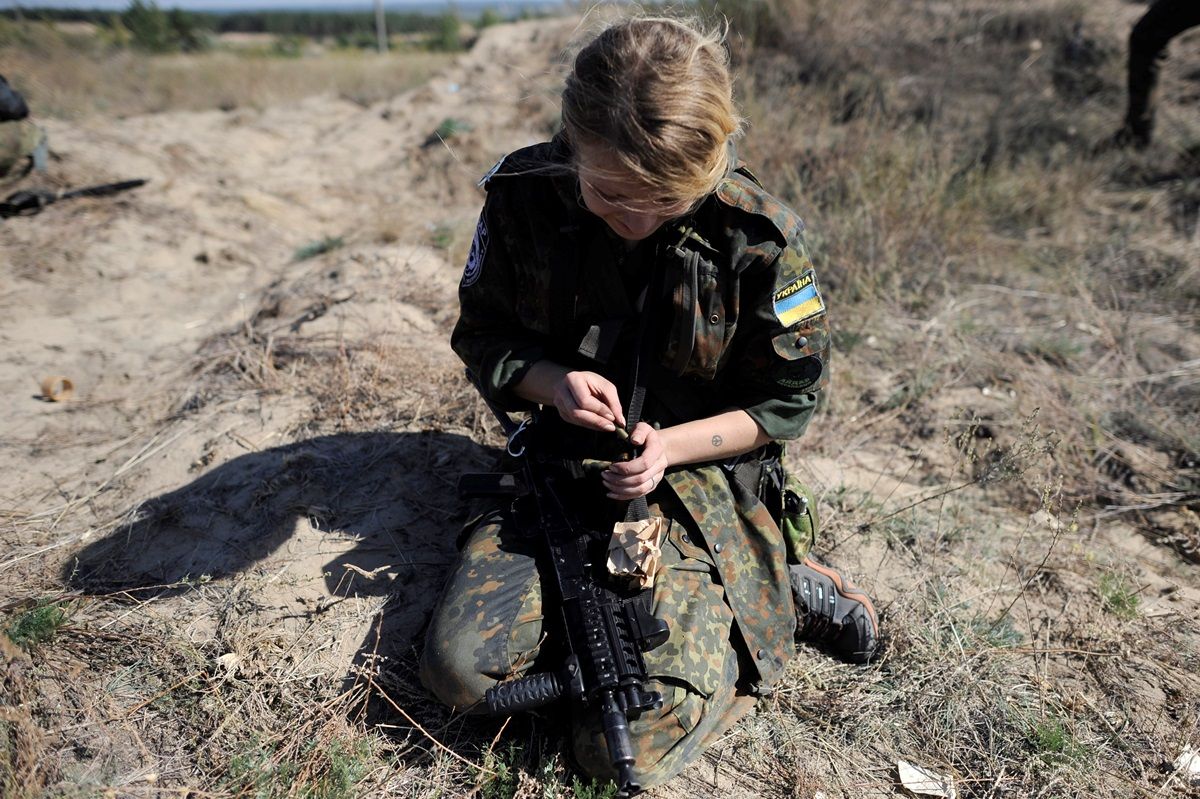
War has a female face
Defend one’s homeland is not solely the men’s job. Despite the lack of proper military education for women in Ukraine and facts of discrimination on the part of the stronger sex, thousands of women have taken up arms to fight for their land in eastern Ukraine. UNIAN has learned how their status was changing in the course of the two years of war.
Since the beginning of hostilities in the Ukrainian Donbas, women have been fighting side by side with men. They, too, take part in combat missions, risking their lives, while receiving wages several times lower than those of their male colleagues. During the past two years, the situation was due to restrictions regarding the appointment of women to combat positions – until recently, they were only contracted as seamstresses or representatives of other "peaceful" professions. That is, a woman could blast an enemy tank while remaining a "cook" on paper or not being listed in the combat unit at all...
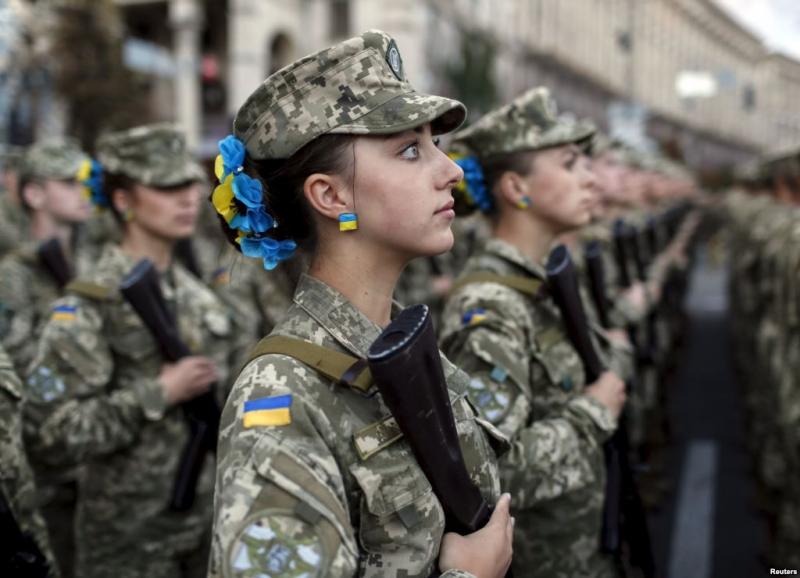
The Defense Ministry’s Order No.292 from June 3, 2016 allowed women to serve in combat units of the Armed Forces of Ukraine. Now they can hold positions of commanders of the infantry fighting vehicles, or machine-gunners, drivers, gunners, scouts, snipers and others. This solution, designed to change the fate of many female troops, was the result of hard work of their battle sisters.
Not a women’s job
"You want equality – go to the army!" – any Ukrainian woman could hear this call at some point in their lives. Before the war erupted, this phrase was perceived differently, but in 2014, many women not only signed a contract with the Armed Forces but also went straight to the front line. According to the Defense Ministry, some 49,500 women served in and worked for the AFU as of early June 2016. Among them, more than 17,000 are military servicewomen, of which more than 2,000 are officers.
However, a woman has to make twice the effort to establish herself in the army. Therefore, it is still quite difficult for them to get to the front line, and in particular, to achieve the right to participate in combat missions. During her first deployment, Amina Okuyeva, the soldier from the battalion named after Dzhohar Dudayev, had to actually argue with her commanders.
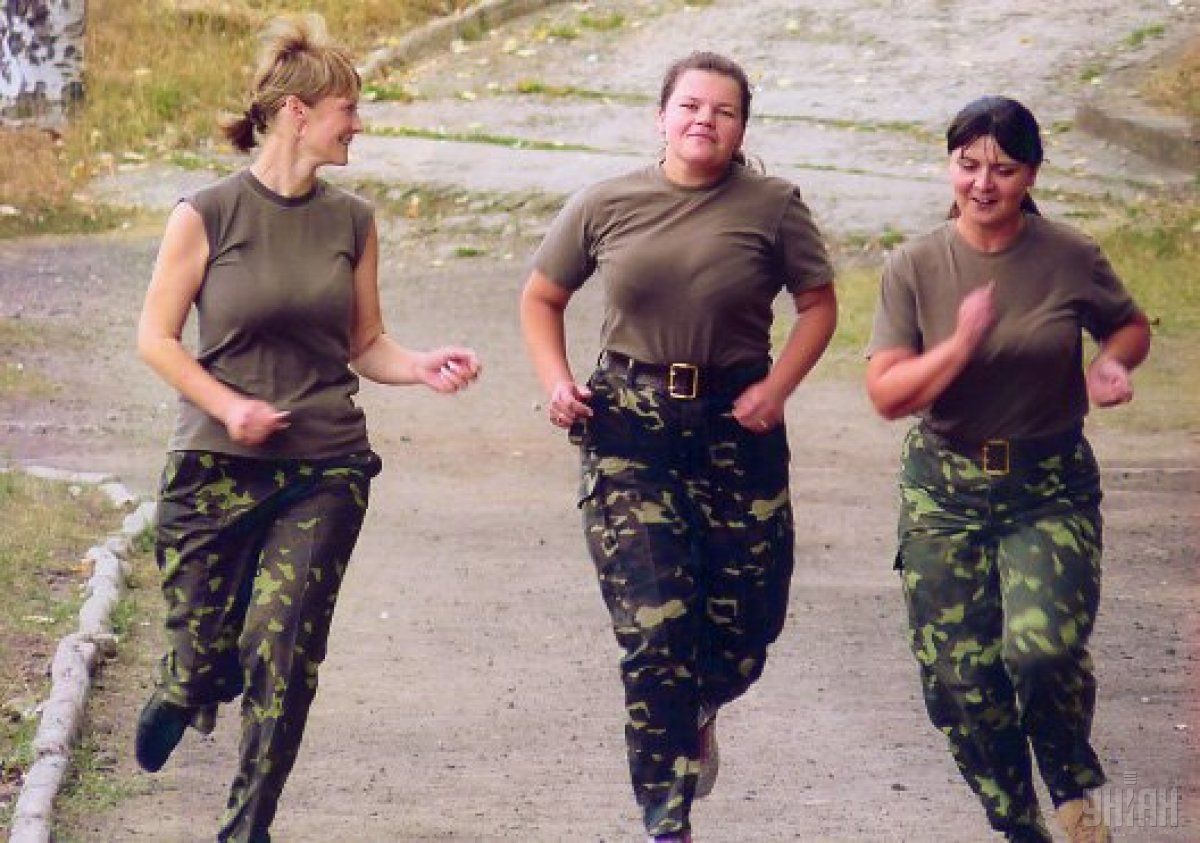
"For me, the decision to go to the front line was anything but unexpected or spontaneous. But getting to the front line is one thing, while getting to take part in combat missions is quite another. During my first deployment, when we stood for about 40 days outside Debaltseve in the village of Chornukhyne, I was mostly assigned internal duty and only a few times did I go on missions. I had to fight for them and argue with the commanders. When a war general Isa Munayev [a Chechen national who was later killed in hostilities in Donbas], I was on my first deployment, so we only talked on the phone. But as soon as I returned from the deployment, I immediately arrived at the location of the battalion named after Dzhohar Dudayev and got to meet everyone there in person. Isa has treated me well from the very start, he saw not only his sister in me but also a fighter. He would often repeat that I am the "man" (that is how the Chechens praise active and strong women). Today, my husband Adam Osmayev, the new commander of the battalion named after Dudayev, shares the view that the fighters’ quality doesn’t depend on gender, so he never bans me from participating in combat operations," she said.
The fighter from the Ukrainian Volunteer Army, Olena Bilozerska, had no problems either in finding her place at the front line. "I had an easier experience than most women, as I arrived in the ATO zone as early as in April 2014, along with my husband and friends. But I do remember well the story of how the then Acting Commandant of the base of the future Right Sector Corps (now it is the base of the 5th Battalion of the Ukrainian Volunteer Army) said that we were like in the older times’ Cossack Sich, so we should know better what women were doing there. There were only three women at the base at the time: the future legendary frontline medic Yana Zinkevich, the wife of one recon officer, who also was a doctor, and I. And then everyone just got used to the fact that there are women, both at the base and at the frontline, and they are not only medics. There are snipers, sappers, anyone,” says the volunteer fighter.
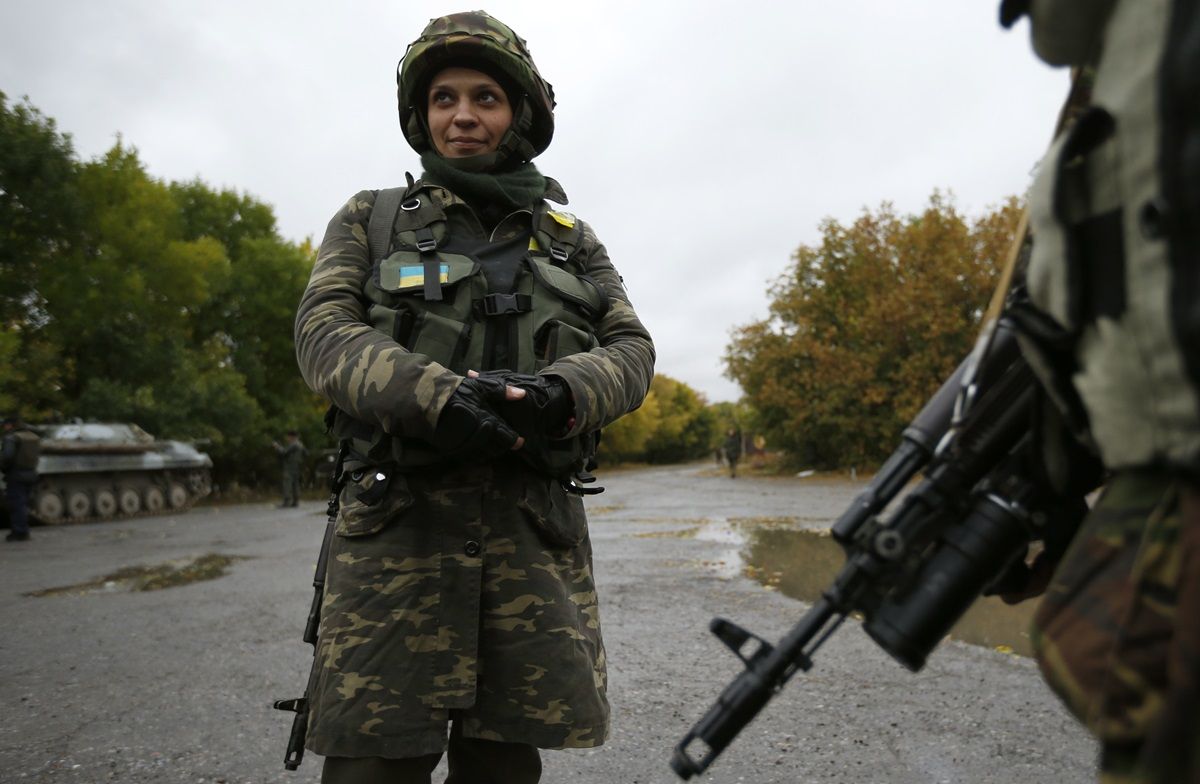
Meanwhile, the medical instructor from Azov Regiment, Olena Mosiychuk, told the media that her male colleagues refused to take her to combat missions "she is a woman and she can go hysterical". However, according to Bilozerska, the attitude of the men from other units to the presence of women on the frontline is better than that in Azov, where, in her opinion, machismo is rooted deep.
In turn, Okuyeva notes that those facing problems of discrimination should not remain silent but rather show their combat efficiency. "A lot depends on how you put yourself initially in relations with colleagues and commanders," she said.
Stereotypes at the front line and in the rear
At the same time, the women say that some stereotypes just don’t work at the front line. For example, the female’s fastidiousness. Women actually get in terms with any discomfort, even with co-ed lodging. "I don’t know what specific needs women require compared with men. Perhaps just separate showering, that’s all. I don’t know how it happens in larger units, but in the smaller ones – it’s all about agreements. Regarding health care, I see no specific problems, either. Naturally, there have always been and still are various specialists at our hospitals, including doctors dealing with female issues. Regarding separate lodging, of course, if conditions allow, then the commanders would always support it. However, if there is no such option, especially in temporary locations at the front line, we don’t see any problems. In combat alert, no one is putting on their pajamas for the night. It’s good if you even can at least take off your boots," says Okuyeva.
Bilozerska shares this opinion: "Besides the hygiene products, women need nothing specific, including separate lodging. At the frontline, women always live side by side with men. They are separated at the bases if there are enough rooms. If there are not enough rooms, or when everyone is living in army tents – women live with men, and there’s nothing wrong with that."
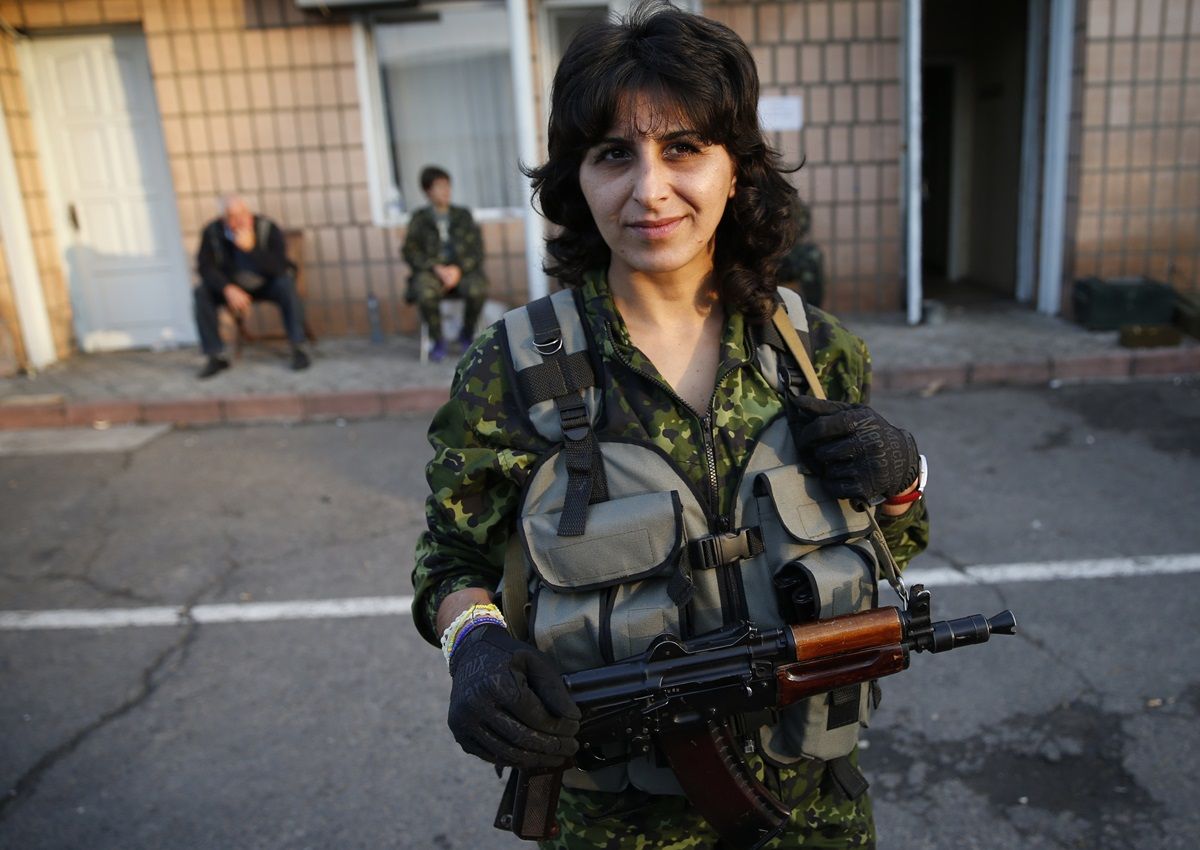
Back at home, both female fighters face no problems with people not understanding them – their families have been fully supportive. However, not everyone is as lucky. Thus, a sociological study titled “The Invisible Battalion”, conducted about a year ago, recorded cases when social services had tried to take custody of children of the women who defended their country. "There have been several such cases. And it was not about infants – those were children of middle- and high school age. And they were not abandoned, just left for a certain period with their mothers’ parents. There was a case when a husband tried to take a child away from his wife during a divorce, arguing that she was a bad mother, because she’s at war..." says the coordinator of the study, director of the volunteer organization Center of Aerial Reconnaissance, Maria Berlinska.
Unfair division into "people" and "women"
It is thanks to The Invisible Battalion that the public became aware of gender injustice at the frontline. It was the first attempt in Ukraine to learn in detail about the problems of women in the ATO.
"I initially designed The Invisible Battalion as a sociological study and a photo project. We started the study in the end of last summer, and the results were presented on December 4. I tried to have the process constantly covered in media, so that the women, themselves, could come to the TV shows and tell about this absurdity: in the country, which is in war, a division exists in the army: there are ‘people’ and there are ‘women’,” said Maria Berlinska.
She admits that it was extremely difficult to change this situation. However, gradually, a simple study grew into a broad civil initiative to fight for the right of women to service in the Armed Forces of Ukraine on equal terms with the men. "At the beginning of the campaign, the officials from the [Defense] Ministry and the General Staff told me that I would fail. But for me, these changes were a matter of principle. This is a question of both gender equality, and, which is by no means less important, the country's defenses," said Maria Berlinska.
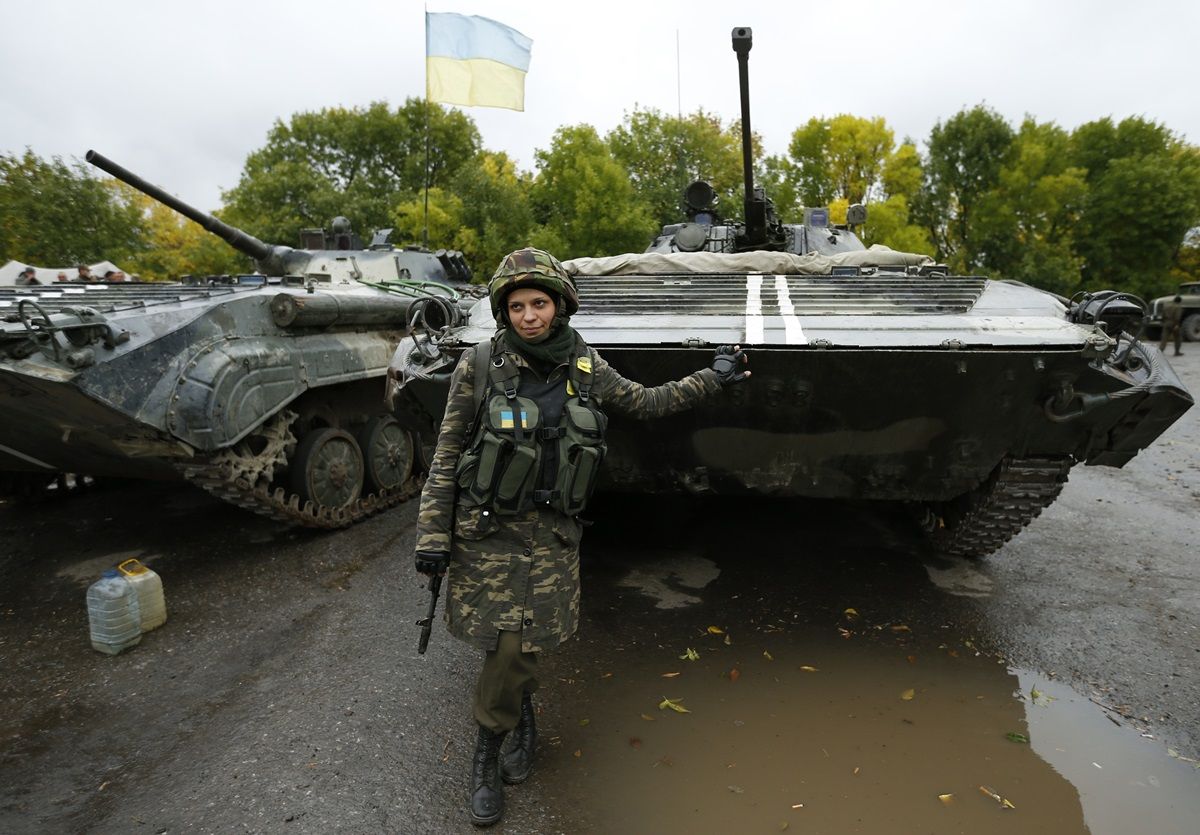
According to her, the Ukrainian army still remains a closed club, where the post-Soviet mentality is dominant. "This is the men's private club. They hide behind the "care for women": "War is not a women’s job, as we care for our women." However, in reality, they are insulted when a woman is in command," she said, adding that the main criterion for the service should be professionalism, not gender.
In her opinion, equal opportunities for men and women in the army are the country's future. And the results of The Invisible Battalion initiative demonstrate that many women want to serve in the military and occupy managerial, or other positions that they find suitable.
Therefore, Maria Berlinska considers Defense Ministry’s Order No.292 only the first step in the reform, because two-thirds of positions in the army still remain inaccessible for female contractors. Particularly critical is the situation with appointments of women to positions of officers - very few of them have a senior and high military rank. As a result, women do not participate in a decision-making process on priorities for the army development and in the development of defense policy. This situation is due to the fact that the appointment commissions look into higher military education of applicants to senior positions. According to Berlinska, women just cannot get such education in Ukraine.
"The issue of education, in fact, is the key one. They don’t allow women to get higher military education. The girls are simply not accepted [to the profile universities]. Therefore, our women become experts in the very process of warfare. For example, someone could not get a sniper education, but she became a sniper in practice," says Berlinska.
We emphasize that the study "Invisible battalion" has only captured the issue of career of women in the Armed Forces. The situation in the Interior Ministry, the State Border Guard Service and the SBU remains unexplored... That's what Maria Berlinska plans to deal with in the short term. Her main goal is to change totally the concept of employing citizens of Ukraine to the security and defense forces. On today’s agenda of Maria is to investigate the situation in the National Guard – that’s if she succeeds to have a good will of the National Guard commander.
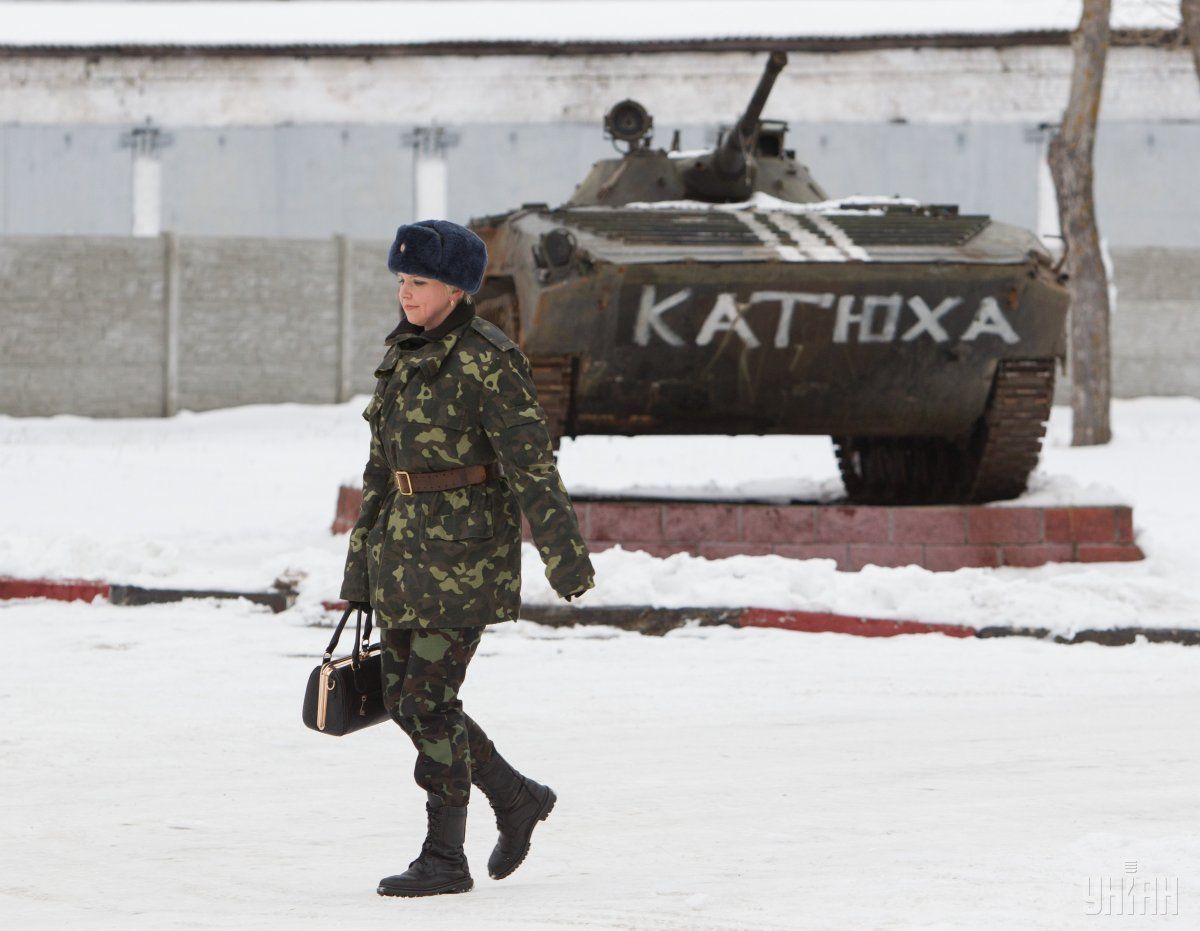
Interestingly, most female troops perceive Order No.292 differently. For example, Olena Bilozerska is not among its fans because she believes women should not be encouraged to go to war. "The women who are meant to be at the frontline will get there anyway, even if they are enlisted as cooks or cleaners. But why should the rest of them go there? Of course, there should be no direct ban for women to fight on the frontline. The commanders who let them fight should not be punished. But we shouldn’t encourage women to serve and fight," she said.
In turn, Amina Okuyeva Defense considered the decision important and correct, although noting that without the active work, the order itself will have little effect. In her opinion, Ukraine needs to use the experience of other countries where women have long and firmly occupied their niche in the power structures. "For example, a friend of mine from the Israeli special forces has told me how their fire training went. The instructor was a tender girl fired her machine gun very skillfully. Upon seeing that, male cadets had an additional incentive "not to get embarrassed," she said...
In May of this year, at a meeting with the officials from the NATO Liaison Office in Ukraine, Defense Minister Stepan Poltorak said that the main purpose of reforming the Ukrainian army is the creation of the Armed Forces by the principles and standards of NATO member states. The Allies’ experience shows that the army can actually rely on women. But only time will tell, whether the minister’s declaration will bring real change. However, while waiting for this change, the armed Ukrainian women, under enemy fire, prove every day that they are not the weaker sex.

